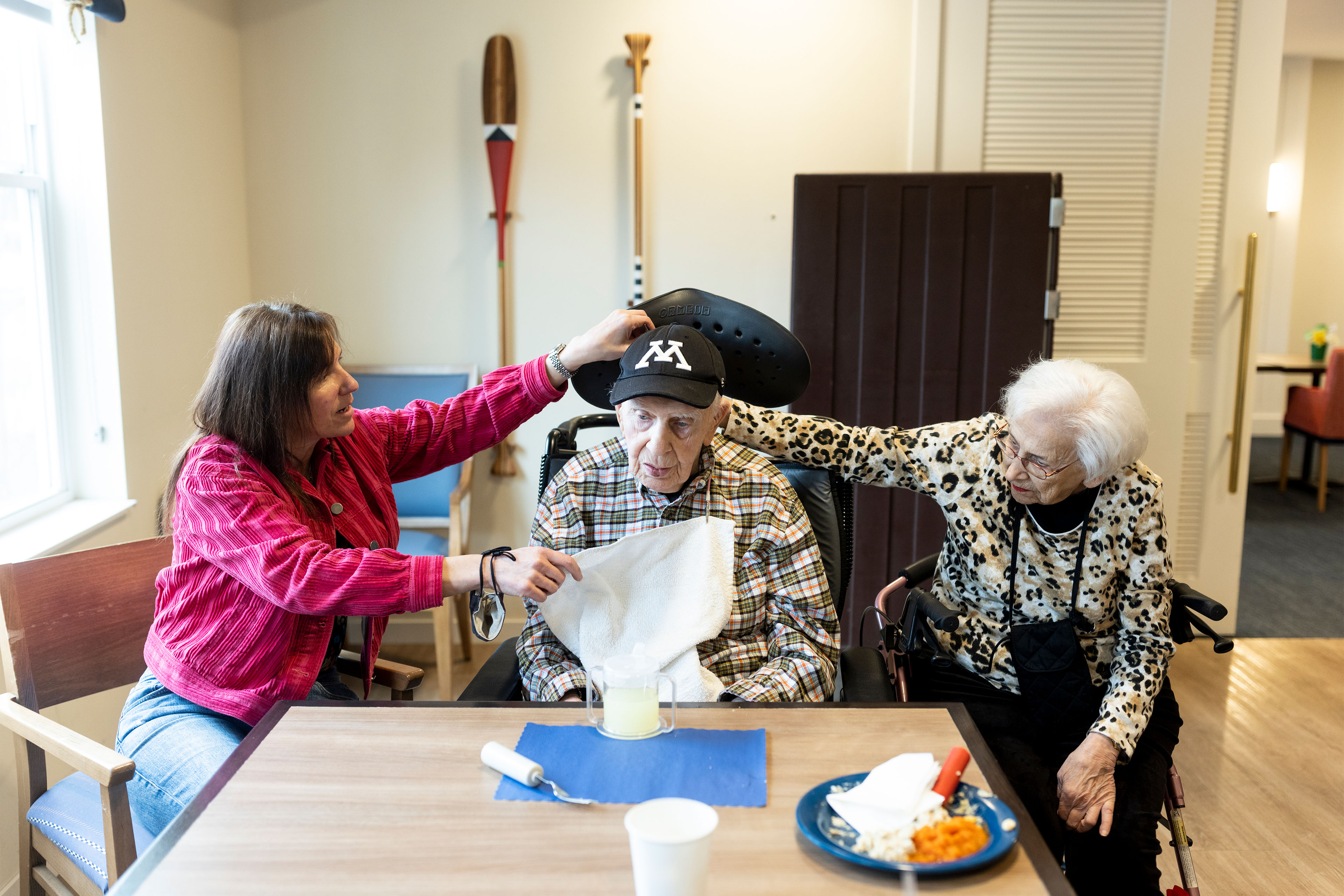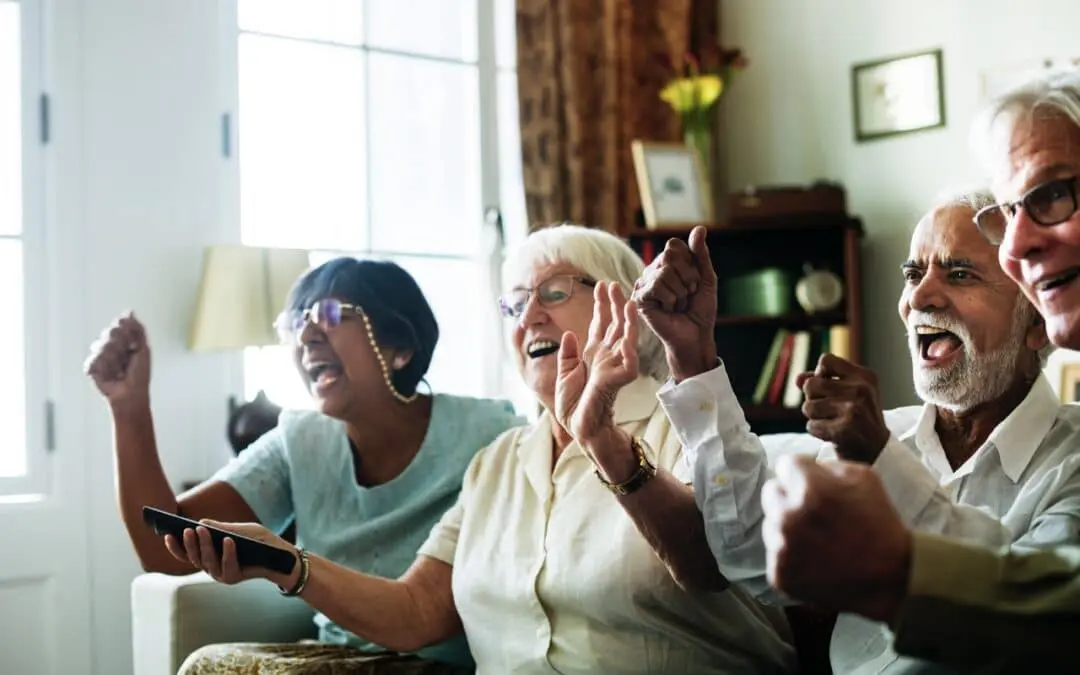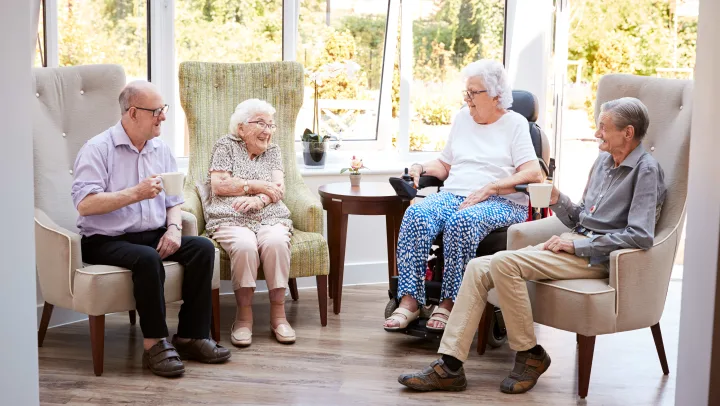Explore budget-friendly Assisted Living facilities for seniors needing support.
Exactly How Assisted Living Facilities Enhance Lifestyle for Those With Mental deterioration
Assisted living facilities play a crucial function in improving the lifestyle for people with dementia by executing customized treatment approaches that deal with their distinct needs. These settings integrate organized tasks with emotional support, fostering a sense of community while making sure safety and self-reliance. The integration of interesting programs and family involvement better enriches the homeowners' experience. Yet, the complexities of mental deterioration treatment remain to develop, prompting a better exam of how these centers adapt and innovate to fulfill the challenges faced by residents and their families. What effects does this have for future care models?
Personalized Care Program
(Dementia Care Charlotte)In most cases, individuals with mental deterioration need tailored support that resolves their unique requirements and choices. Personalized care strategies are vital in assisted living settings, as they ensure that each resident gets appropriate focus and services. These strategies are developed collaboratively, entailing medical care specialists, caregivers, and relative to create an extensive overview of the person's clinical history, cognitive capacities, and individual passions.
A well-structured individualized care strategy generally includes certain goals connected to wellness administration, daily tasks, and social interaction. It accounts for the person's cognitive decrease while advertising self-reliance and dignity. Routine assessments and updates to the care plan are essential, as they enable alterations based upon the homeowner's developing problem and preferences.
Secret components of these strategies usually include drug monitoring, behavioral assistance strategies, and dietary standards tailored to the individual's demands (Assisted Living). By concentrating on personalized treatment, aided living facilities can promote a helpful environment that improves the lifestyle for people with dementia, inevitably adding to their total wellness and joy. This personalized strategy respects the uniqueness of each local, ensuring they get the thoughtful treatment they require

Involving Activities and Programs
Engaging citizens in meaningful activities and programs is vital for enhancing the lifestyle for people with dementia. These activities not just offer enjoyment yet likewise boost cognitive function and promote social interaction, which can reduce feelings of isolation commonly experienced by homeowners.

In addition, individualized programs are essential in guaranteeing that each resident's unique preferences and abilities are recognized. This customized method motivates engagement, enhances self-confidence, and offers a feeling of success.
Furthermore, normal assessments of locals' interests can assist staff customize and adjust tasks to much better match evolving demands. By prioritizing interesting tasks and programs, aided living centers can substantially boost the total experience and emotional health of individuals dealing with mental deterioration.
Safe and Encouraging Setting
Developing a risk-free and helpful atmosphere is necessary for individuals with my explanation mental deterioration, as it straight impacts their wellness and quality of life. Aided living centers are designed with specific attributes that promote safety and security while cultivating a complacency and convenience. These settings prioritize accessibility, with formats that decrease complication and urge freedom, enabling homeowners to browse their surroundings a lot more conveniently.
Security measures, such as safe and secure entryways and leaves, stop wandering and unapproved accessibility, which are crucial considerations for people with dementia (Assisted Living). Personnel are trained to identify the one-of-a-kind requirements of citizens, providing customized assistance and supervision to guarantee their safety. The unification of soothing shades and acquainted items can assist decrease anxiety and disorientation, producing a much more calming atmosphere.
In addition to physical safety, emotional support is extremely important. Facilities frequently utilize staff that are not just competent in caregiving yet also educated in empathy and interaction, cultivating trust fund and rapport with citizens. This holistic strategy adds to a caring environment where individuals feel valued and comprehended, inevitably enhancing their overall quality of life.
Social Interaction and Neighborhood
A supportive atmosphere not only prioritizes safety but additionally promotes chances for social interaction and neighborhood involvement, which are vital for individuals with dementia. In assisted living facilities, structured activities and communal areas motivate citizens to get in touch with one another, decreasing sensations of seclusion usually experienced by those with cognitive impairments.
Social communication plays a considerable function in boosting emotional wellness and cognitive function (Memory Care). Engaging with peers in group activities such as games, arts and crafts, or workout not just promotes cognitive abilities but also supports a feeling of belonging. Facilities commonly organize occasions that promote socializing, permitting citizens to develop relationships and share experiences, which can be particularly advantageous for those with dementia
In addition, a vivid community atmosphere can boost the general quality of life for citizens. Personnel participants are trained to facilitate interactions and assistance homeowners in developing purposeful connections.
Household Involvement and Support
Family members involvement is vital in supporting individuals with mental deterioration in assisted living atmospheres. Proactively engaging member of the family not only provides psychological convenience to locals yet also promotes a feeling of belonging and continuity in their lives. When households get involved in care planning and everyday activities, they add beneficial insights about the individual's preferences, history, and needs, which can improve individualized treatment.
Moreover, regular household brows through can dramatically enhance the psychological well-being of locals, minimizing sensations of seclusion and anxiety. Relative can also help in preserving cognitive feature by involving their liked ones in familiar conversations and tasks. This communication strengthens individuality and helps residents feel valued and understood.

Verdict
In verdict, assisted living centers substantially boost the quality of life for people with dementia via customized care plans, engaging tasks, and a risk-free setting. Collectively, these elements produce an all natural approach to care that addresses the unique needs of individuals with mental deterioration, promoting general health and self-respect.